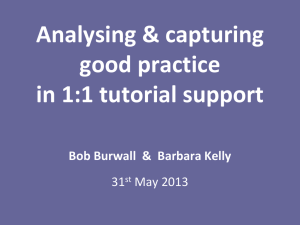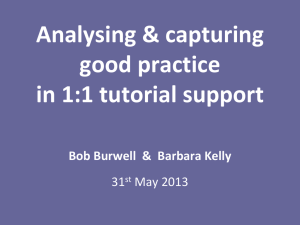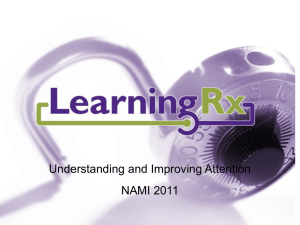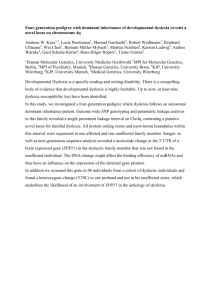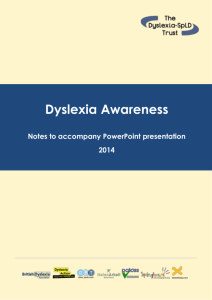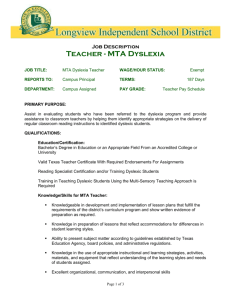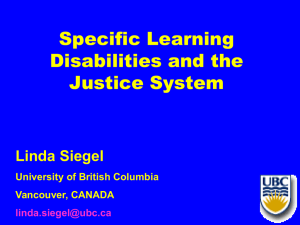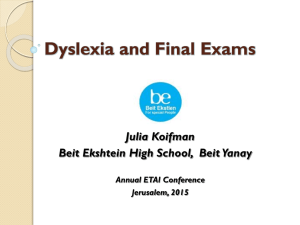Melanie Jameson - Dyslexia International
advertisement
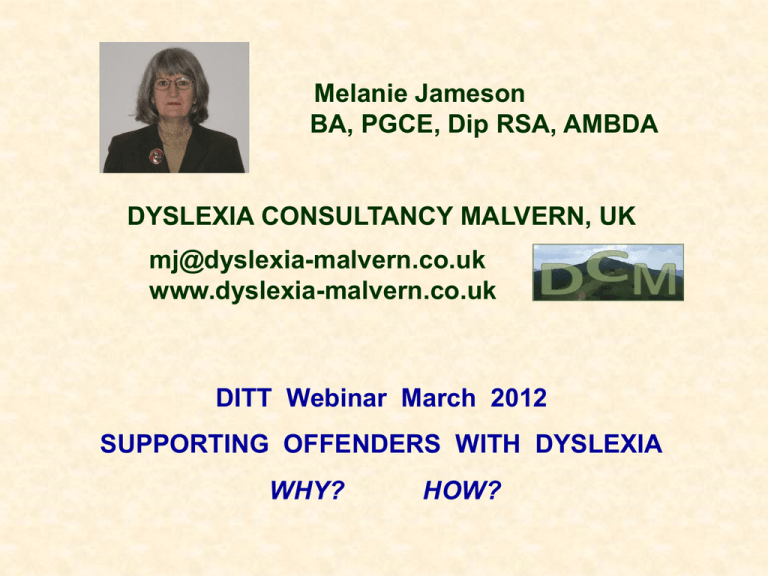
Melanie Jameson BA, PGCE, Dip RSA, AMBDA DYSLEXIA CONSULTANCY MALVERN, UK mj@dyslexia-malvern.co.uk www.dyslexia-malvern.co.uk DITT Webinar March 2012 SUPPORTING OFFENDERS WITH DYSLEXIA WHY? HOW? WHY WE NEED TO KNOW ABOUT DYSLEXIA 1. Research on offenders shows that around 20% have a hidden disability such as dyslexia SEE The Incidence of Hidden Disabilities in the Prison Population (2005) UK, Learning & Skills Council 2. People with dyslexia (and related conditions) fare badly in the criminal justice system for dyslexia-related reasons: inconsistencies imply ‘untruthfulness’ failure to grasp the import of questions seems ‘evasive’ hesitancy suggests you are ‘unsure about your evidence’ a reaction to stress can be misinterpreted as ‘aggression’ the breakdown of coping strategies gives an impression of complete incompetence HOW TO SUPPORT DYSLEXIC OFFENDERS 1. Be aware that they are largely visual learners 2. Teach the subskills (as well as the skills) 3. Break tasks into component parts 4. Use technology (to compensate for poor literacy) 5. Include memory and organisational strategies 6. Organise a mentoring or ‘buddy’ system 7. Give frequent feedback and encouragement 8. Use materials that minimise Visual Stress See www.dyslexia-malvern.co.uk/visualstress MANY OFFENDERS WILL BE UNAWARE THAT THEY ARE DYSLEXIC [RESOURCES ON NEXT SLIDE] 1. SOFTWARE: Touch-type, Read & Spell www.ttrs.co.uk 2. GUIDES from NIACE: E-learning in the Secure Estate (2009) Supporting adult learners with Dyslexia: harnessing the power of technology (2006) 3. WEBSITE: www.sentencetrouble.info 4. FREE RESOURCES on www.dyslexia-malvern.co.uk a) Offending, E-learning & Dyslexia (revised 2008) b) KIWIs (2011) . Key facts about each Specific Learning Difficulty (SpLD) . Impact of the SpLD . Ways of Working with Offenders . Information & Networks on SpLDs c) Good Practice Guide for Justice Professionals on SpLDs (PDF revised 2012) d) Probation Information Sheets (2000)

